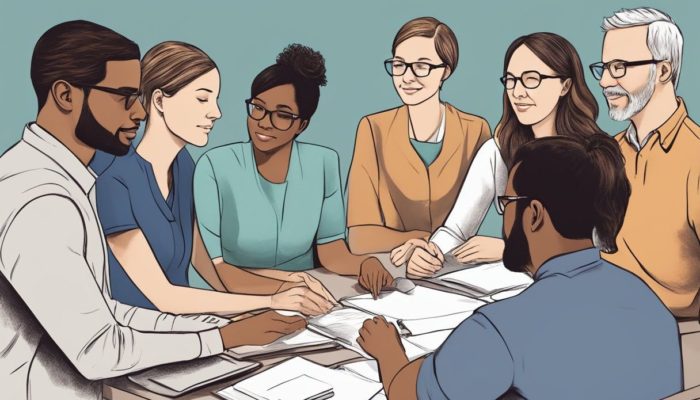Collaboration between LEAF Wraparound and the Fear to Love program aims to significantly enhance adoption outcomes through a unique blend of trauma-informed strategies and supportive training. By integrating AI with established trauma care principles, LEAF Wraparound expands its reach in supporting adoptive families and caregivers working with children who have experienced trauma. This partnership stands out in the field of foster care intervention and adoption by offering structured parenting strategies that extend beyond conventional approaches.
The initiative seeks to foster resilience in children, improving their emotional and psychological well-being. The LEAF and Fear to Love partnership underscores the importance of a comprehensive approach, combining AI-driven insights with hands-on training to equip parents and caregivers with the necessary tools for success. These efforts are set to transform trauma care in adoption, providing a foundation for healthier, more stable family environments.
This innovative collaboration not only promises immediate benefits for families but also has long-term implications for foster care interventions globally. The focus on trauma training reflects a growing recognition of the complex needs of children in the adoption system. Such initiatives highlight the potential for meaningful change driven by evidence-based practices and collaborative efforts.
LEAF Wraparound and Fear to Love: A Strategic Alliance
A powerful collaboration between LEAF Wraparound and Fear to Love aims to revolutionize adoption outcomes. By integrating trauma-informed practices with comprehensive support systems, they seek to foster a more nurturing environment for both children and adoptive families.
Unveiling the LEAF Model in Foster Care
LEAF Wraparound offers specialized services designed to support adoptive families facing challenges. The program emphasizes a love-based, trauma-informed approach, addressing the specific needs of children and parents. By providing resources and guidance, LEAF ensures families remain intact and resilient. Its California-based initiative focuses on intensive interventions, helping parents understand and mitigate the effects of trauma, thereby strengthening familial bonds.
Fear to Love’s Role in Trauma Training
Fear to Love specializes in transforming the way caregivers approach trauma in adoptive children. Their expertise lies in equipping parents and professionals with the tools necessary to handle trauma-related behaviors. They offer specialized training that underscores the importance of empathy and patience, thus fostering an environment conducive to healing and growth. The partnership aims to integrate these strategies into the standard practice for foster and adoptive care.
Enhancing Adoption Outcomes through Training
Both organizations prioritize training as a critical component of their mission to enhance adoption outcomes. These training sessions provide practical strategies and knowledge to empower adoptive families. The focus is on creating long-term solutions that reduce adoption disruptions and improve the overall well-being of children. Through this alliance, the adoption process becomes more inclusive and supportive, ultimately benefiting all involved.
Implementation and Impact of Joint Efforts
The partnership between LEAF Wraparound and Fear to Love is transforming collaborative trauma care by enhancing support for adoptive and foster families. Their targeted initiatives aim to improve adoption outcomes through specialized training and trauma-informed resources.
Adoption Success Stories
The collaboration has led to notable improvements in family dynamics and adoption success rates. Through coordinated training programs, adoptive families receive tools and strategies tailored to meet the unique needs of traumatized children.
Parents have reported increased confidence in handling behavioral challenges, fostering healthier relationships. Success stories include families experiencing fewer disruptions and greater stability, leading to long-lasting adoptions.
By empowering families with specialized knowledge, the joint effort is directly contributing to more positive adoption experiences.
Challenges and Opportunities
While the collaboration has been beneficial, it faces challenges such as resource allocation and the integration of training across diverse systems. Limited access to training in rural areas presents logistical barriers.
Despite these challenges, opportunities for growth exist. Expanding digital training modules offers potential for reaching wider audiences.
Additionally, ongoing evaluation and feedback mechanisms enable continuous improvement. By addressing these challenges, LEAF and Fear to Love are poised to pioneer innovative solutions in trauma care and support within the foster and adoption community.
